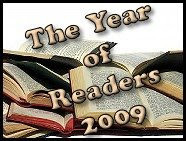I fell for Forster's writing in the first summer after college when I read Maurice and A Room of One's Own. I'd read and enjoyed A Passage to India in school, and liked it, but it fostered no great passion for him. Someday I plan to reread it.
When I develop a passion for an author, I always like to know that there is a lot out there to read. With Forster, that's not really the case. There are a number of books out there, but it's not a vast quantity. Because of this, I am even more excited that a new book of his writings has been released. The BBC Talks of E.M. Forster, 1929–1960 which is reviewed here by Zadie Smith for the New York Review of Books.
It is of course the NYRB that makes me a hypocrite, and timing that helps me avoid hypocrisy. I was going to write about my general dislike and disinterest in reviews. For books and movies, I do not go to published reviews for my recommendations. However, here I am, having read a review and very enthusiastic about acquiring the book. Thank god I didn't use particularly harsh language to criticize reviews, a good inspiration just at the time when I am planning on writing one myself.
But back to Forster. Here is Zadie Smith's explanation of him.
He didn't lean rightward with the years, or allow nostalgia to morph into misanthropy; he never knelt for the Pope or the Queen, nor did he flirt (ideologically speaking) with Hitler, Stalin, or Mao; he never believed the novel was dead or the hills alive, continued to read contemporary fiction after the age of fifty, harbored no special hatred for the generation below or above him, did not come to feel that England had gone to hell in a hand-basket, that its language was doomed, that lunatics were running the asylum, or foreigners swamping the cities.
I don't know about you, but I was struck by how rare and admirable this makes him even today. The flaws he lacked are still very common.
I was also struck by his goals for his radio show, which strongly resemble mine for this blog. Of course as he is Forster, I can't pounce upon a single, quotable marching cry. Of course, there is an easy way to get the sense of it. You can scroll back up and read the article. I recommend it.

No comments:
Post a Comment